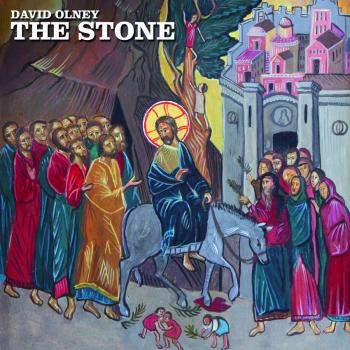After reading Tolkien scholar Devin Brown's The Christian World of the Hobbit, I began to wonder to myself, "How did I miss this obvious opportunity all these years to lead teens to the Kingdom of God by way of Middle-earth?"
I discovered J.R.R. Tolkien's The Hobbit in my own adolescence, introduced to the book by my twin brother and other friends who were obsessed with fantasy fiction. I was not. More drawn to the poetic science fiction of Ray Bradbury, I had little use for dragons and goblins and wizards. Hobbits, though, were a different story. There was something about the character of Bilbo Baggins, gentleman hobbit turned burglar that intrigued my teenage mind. As a Christian youth, I was attracted to the saga of this unlikely hero and the journey he takes from the comfort of his hole in the ground. What I failed to realize all those years ago was what a perfect echo this story is of our call to seek the Kingdom of God in our midst.
Perhaps my lack of recognition of the Christian influences in The Hobbit was intentional. Brown's text deftly explores how Tolkien, a devout Catholic, deliberately chose not to turn his writing into an overbearing Christian allegory. Unlike his friend and contemporary, C.S. Lewis, Tolkien was not interested in creating "Christian" fiction or in simply throwing a fantasy template over the top of otherwise obvious biblical stories. Instead, he sought to craft a tale that, in a sense, absorbed a Christian ethos. So there are no clear one-to-one correlations between the characters in Tolkien's Middle-earth and the Bible. Rather, Brown argues, "while there may be similarities that evoke associations in the reader's minds, the proper claim to make in these cases is something like parallels, echoes, resembles, mirrors, or reflects, not represents, symbolizes, corresponds to, equals, or is." (p. 33) Tolkien's Middle-earth stories are imbued with elements of grace, forgiveness, redemption, and faith because Tolkien himself lived a faith-saturated life.
As one who works regularly with teens in the Church, the echoes of the Christian faith story in The Hobbit makes it a much more powerful tool than if Tolkien had gone the route of simple turning the story into an obvious Sunday school lesson. Instead, what Tolkien offers is a profoundly relatable tale of a Hobbit who starts the story wanting nothing more than to stay in the comfort of his home. It is only in his begrudging willingness to accept Gandalf's challenge to go and defeat the dragon Smaug that, Brown asserts, Bilbo will "become the hobbit he was intended to be. We could say that the adventure will be the making of him." (p. 83)
Herein lies the great struggle that we in the North American Church face regularly when working with middle- and upper middle-class youth. We want to send them on the faith journey that will be the "making of them." Yet often they are so completely content and comfortable in their lifestyle that they see no reason to desire anything other than more of the status quo. Our challenge then is to play the role of Gandalf and offer them the opportunity to shake loose of that comfort and seek a different way of being in the world. Is this not also the challenge of the gospel? When Jesus calls people to leave home and family to follow "the way," he is inviting them on a dangerous journey. It's a journey in which one often leaves behind the seeming comfort of the present world, in order to be awakened to a new way of being and seeing and living.
The gift of Professor Brown's The Christian World of the Hobbit is that he offers a way to think about how Bilbo's journey might just be our own journey. His text challenges us to see this beloved story through a faith-lens that is more honest and thoughtful than the overused "The Gospel According to _____" approach that is so often employed to try to impose a Christian worldview onto otherwise secular pop culture. Instead, he illustrates how Tolkien's own deep faith found natural expression in his work. And for those of us mentoring teens, Brown offers a way to demonstrate that the journey of faith is not just found in the pages of the Bible, but rather can imbue the whole adventure we call life.
12/2/2022 9:10:33 PM





